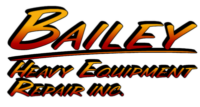Beating the Heat: Critical Heavy Equipment Maintenance for Lexington’s Summer Grind

Summer in Lexington, OR, is a season that tests the limits of both people and machines. For those in construction, agriculture, and other sectors reliant on heavy equipment, the summer grind presents not only a surge in workload but also an uptick in maintenance concerns. Rising temperatures can push machinery beyond its comfort zone, leading to breakdowns, delays, and costly repairs. Therefore, establishing a robust strategy for heavy equipment repair and maintenance becomes not just a recommendation but a necessity. This blog will explore the nuances of heavy equipment maintenance in Lexington, OR, during the summer, and provide insights into how businesses can keep their operations running smoothly and efficiently through proactive care.
The Summer Strain on Heavy Equipment in Lexington, OR
Lexington, OR, located in Eastern Oregon, is no stranger to harsh seasonal changes. Summers often bring extended heat waves with temperatures that hover in the high 90s and sometimes spike over 100°F. These extreme conditions put immense thermal and mechanical stress on heavy machinery such as bulldozers, excavators, loaders, and harvesters.
Overheating is one of the most prevalent issues faced during this season. Engine systems are particularly vulnerable, with coolant systems working overtime to regulate heat. Hydraulic systems can also suffer as fluid viscosity changes under high temperatures, leading to pressure drops and component damage. The increased use of equipment during long summer days further accelerates wear and tear, making preventative maintenance not just helpful but critical.
Lexington, OR, heavy equipment maintenance teams must be especially vigilant during these months. Dust and debris from dry, arid conditions can clog filters and cooling systems, while rubber components like hoses and belts are prone to cracking or snapping due to thermal expansion. The result is a higher-than-average risk of mid-operation failure that can set projects back significantly.
Preventative Maintenance: A Seasonal Necessity
One of the most effective ways to tackle summer-induced stress on heavy equipment is through a structured preventative maintenance program. Preventative maintenance, heavy machinery-focused, should begin with an inspection schedule that increases in frequency during the hottest months.
Regular inspections allow for early detection of signs of fatigue in key systems—such as coolant leaks, degraded hydraulic fluid, or worn fan belts. Replacing parts before they fail not only prevents unexpected downtime but also ensures optimal performance under stress. For example, swapping out an aging radiator hose before it bursts in 100°F heat can save hours—if not days—of repair time and project delays.
In Lexington, OR, heavy equipment repair specialists recommend focusing on four major systems during summer: the cooling system, air filtration, lubrication system, and electrical system. Checking and flushing coolant regularly ensures the engine doesn’t overheat. Air filters must be cleaned or replaced more often to prevent dust blockages. Lubrication levels and oil viscosity should be monitored closely, especially as heat can cause oil to thin, reducing its protective properties. Battery terminals and electrical connections need to be free of corrosion and tightly secured, as batteries can be negatively affected by high heat.
Preventative maintenance in Eastern Oregon must also include thorough pre- and post-operation inspections. Operators should be trained to recognize early warning signs—like unusual engine noise, reduced hydraulic response, or overheating indicators on dashboard gauges. Early detection is often the difference between a quick fix and a full-blown repair.
Fighting Overheating: Best Practices for Summer Operation
Heavy equipment overheating prevention in Lexington, OR, hinges on both machine readiness and operator habits. Even well-maintained equipment can overheat if it’s not used correctly under extreme conditions. Therefore, operational adjustments are necessary to help machines cope.
Scheduling work during cooler parts of the day—early mornings and late evenings—can dramatically reduce strain on equipment. When possible, giving machines rest periods throughout the day allows internal systems to cool down, extending both performance and equipment life. Shading parked machinery can also help mitigate radiant heat buildup before startup.
Another often overlooked factor in overheating is the cleanliness of the equipment. Dust buildup on radiator fins and oil coolers can act as insulation, trapping heat instead of allowing it to dissipate. Routine power washing of external components, especially during peak dust conditions in Eastern Oregon, is a simple yet effective countermeasure.
Proper fluid management is equally vital. Ensuring that the engine has the right mixture of water and antifreeze/coolant is crucial. High-quality, temperature-specific hydraulic fluids and motor oils should be selected based on the manufacturer’s summer recommendations. These fluids are engineered to withstand the higher operating temperatures typical in summer workloads.
One must also not ignore tire and track maintenance. Heat can increase air pressure in pneumatic tires, risking blowouts, while excessive friction in rubber tracks due to dry terrain can accelerate tread wear. Keeping these components within optimal operating specifications is part of a holistic overheating prevention strategy.
The Role of Professional Repair Services in Lexington, OR
While in-house preventative maintenance plays a crucial role, professional heavy equipment repair services in Lexington, OR, are indispensable during the summer. Certified technicians bring a deeper understanding of how seasonal stress affects specific makes and models, enabling quicker diagnostics and more reliable repairs.
Local repair shops often have better access to regional parts suppliers, reducing wait times for critical components. Additionally, they offer services like radiator pressure testing, engine diagnostics, and complete fluid analysis—tools that go beyond what standard job site maintenance crews can perform.
Contracting with a local Lexington, OR, heavy equipment maintenance provider for summer check-ups or mobile repair visits can be a game-changer. These professionals can come on-site to perform maintenance or repairs, reducing equipment downtime and avoiding the logistical headaches of transporting large machinery back and forth.
Partnering with a reliable repair company also means you have access to emergency services when breakdowns occur. During the high-demand summer season, this support can be invaluable in keeping projects on schedule and within budget. With the heavy workload and tight deadlines characteristic of Lexington’s summer construction and agricultural calendars, every minute counts.
Looking Ahead: Building a Long-Term Summer Maintenance Strategy
Long-term success in heavy equipment management in Lexington, OR, requires more than a reactive approach to problems—it demands a year-round commitment to planning and preparation. Summer is just one season in the operational life of heavy machinery, but its effects can linger if not properly managed.
As the season winds down, it’s vital to conduct comprehensive post-summer inspections. Look for signs of thermal fatigue in components like gaskets, seals, and hydraulic lines. Assess wear patterns on tires and tracks. Document any overheating incidents, however minor, to guide future maintenance schedules and parts replacement cycles.
The data gathered during summer operations should inform the off-season repair and maintenance strategies. For businesses operating in Eastern Oregon, where winter brings its own unique challenges, this insight ensures your fleet transitions smoothly from one season to the next without compounding issues.
Moreover, developing a digital maintenance log for each piece of heavy equipment can streamline operations, helping track parts lifespans, flag recurrent issues, and predict future failures before they become problems. Integrated telematics systems, now available even in mid-sized construction fleets, can automate many of these tasks, giving fleet managers real-time visibility into equipment performance metrics.
Looking ahead, the demands on heavy machinery in Lexington, OR, will only grow as infrastructure projects expand and agricultural cycles intensify. That makes it more important than ever to embrace a holistic, season-specific approach to maintenance—one that emphasizes preparation, adapts to local conditions, and leverages expert support.
Conclusion
While Lexington’s summer heat poses a formidable challenge, it also presents an opportunity: the chance to strengthen your maintenance practices, extend equipment life, and gain a competitive edge through operational reliability. With proper heavy equipment repair routines, a focus on preventative maintenance, and a deep understanding of overheating prevention specific to Eastern Oregon’s climate, your machinery—and your business—can keep moving forward no matter how high the temperature climbs.
